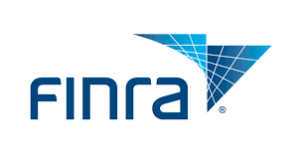- Free Consultation: (212) 897-5410 Tap Here To Call Us
FINRA RULES EX PARTE TEMPORARY RESTRAINING ORDER RESULTS IN STATUTORY DISQUALIFICATION

FINRA’s Office of Hearing Officers recently rendered a decision on an issue of first impression in Dep’t of Enforcement v. NYPPEX, LLC, et al., (Disc. Proc. No. 2019064813801). Enforcement charged FINRA member firm, NYPPEX, LLC, its former CEO, Laurence Allen, and its CCO, Michael Schunk, with numerous violations of FINRA rules. The charges stemmed from Respondents’ conduct in the wake of a temporary restraining order issued by a New York state court against Allen. Among other things, the order, obtained at the behest of the Office of the Attorney General for the State of New York (“NYAG”), enjoined Allen from engaging in securities fraud and violating New York’s securities laws. Enforcement took the position that the TRO rendered Allen statutorily disqualified from continued association with a FINRA member firm. Allen could have remained associated with the Firm if it applied for, and received, FINRA’s permission pursuant to FINRA Rule 9520. Allen’s supervisor, Schunk, however, purportedly let Allen continue as an associated person at NYPPEX for over a year without seeking a waiver from FINRA.
FINRA’s disciplinary proceeding was triggered by the ex parte TRO. After a two-year investigation, in December 2018, the NYAG commenced an action under Article 23-A of New York’s General Business Law, known as the Martin Act, against Allen and certain others. The NYAG applied on an ex parte basis for preliminary injunctive relief against Allen, NYPPEX Holdings, and others under Section 354 of New York’s General Business Law. The NYAG stated that a preliminary injunction was warranted because of the allegations of fraud and fraudulent practices by Allen and his refusal to produce documents or appear for testimony. In December 2018, the Supreme Court of the State of New York granted the NYAG the relief it sought and issued the TRO without hearing from Allen or NYPPEX. Allan was served with the Order in January 2019 and Schunk learned about it that month as well.
On December 4, 2019, the NYAG filed a complaint in the New York Supreme Court against NYPPEX, Allen and others (Index No. 452378/2019). In February 2020, the New York Supreme Court concluded a five-day hearing and issued a preliminary injunction prohibiting Allen and NYPPEX from, among other things, violating the Martin Act and from “facilitating, allowing or participating in the purchase, sale or transfer of any limited partnership interest in [the fund].” At this point in time, NYPPEX filed an MC-400 Application seeking permission for NYPPEX to remain associated with a disqualified person, Allen. FINRA Enforcement, however, argued that Allen became statutorily disqualified when the TRO was issued in 2018, more than a year before NYPPEX filed the MC-400 Application.
A person is deemed disqualified from continued association with a FINRA member firm if, among other things, such person “is enjoined from any action, conduct, or practice” specified in Section 15(b)(4)(C) of the Exchange Act. That section, in turn, includes a situation in which a person “is permanently or temporarily enjoined by order, judgment, or decree of any court of competent jurisdiction from . . . engaging in or continuing any conduct or practice in connection with any such activity, or in connection with the purchase or sale of any security.”
Once a member becomes aware that one of its associated persons is subject to a disqualification, the member is obligated to report the event to FINRA. The firm must amend the individual’s Form U4 within 10 days of learning of a statutory disqualifying event. The member firm then must either file a Form U5 terminating the individual’s association or file an MC-400 Application seeking to sponsor the association of the disqualified person. If the member firm neither terminates the individual nor submits an MC-400 Application, the member is ineligible to continue in FINRA membership.
In the case of NYPPEX and Allen, the respondents argued that the TRO did not cause Allen to be statutorily disqualified and they claimed that they relied on both in house and outside counsel in coming to that conclusion. Among other things, Respondents argued that the TRO did not subject Allen to statutory disqualification because it was issued ex parte and Allen had no “notice and opportunity to be heard.” The OHO noted that “[w]hether an ex parte temporary restraining order triggers a statutory disqualification appears to be an issue of first impression.” The OHO, however, had little difficulty in finding that the TRO was indeed an injunction that triggered statutory disqualification. The decision notes that nothing in the language of the Exchange Act requires notice and opportunity to be heard before an event is disqualifying. The OHO concluded, “[i]n sum, there is no basis to conclude that Congress meant to exclude an ex parte temporary restraining order from the operative provision.”
Finally, the OHO also rejected any advice-of-counsel defense because, “[r]eliance on advice of counsel is not relevant to liability if scienter is not an element of the violation.” The decision noted, however, that even when reliance on advice of counsel is not relevant to liability it may be considered as a possible mitigation of sanctions. In the present case, however, there seems to be little mitigation of the sanctions imposed. NYPPEX was expelled from FINRA membership, Allen was barred from the securities industry, and Schunk was fined $120,000, barred from acting in any principal or supervisory capacity and suspended from the industry three and a half years.
Similar to Enforcement, the NYAG likewise prevailed at trial. The New York Supreme Court found Allen and NYPPEX liable for assorted false and misleading statements and ordered disgorgement of nearly $7 million.
Herskovits PLLC has a nationwide practice defending investigations and litigation brought by FINRA and other regulators. Feel free to call us for a consultation at (212) 897-5410.





